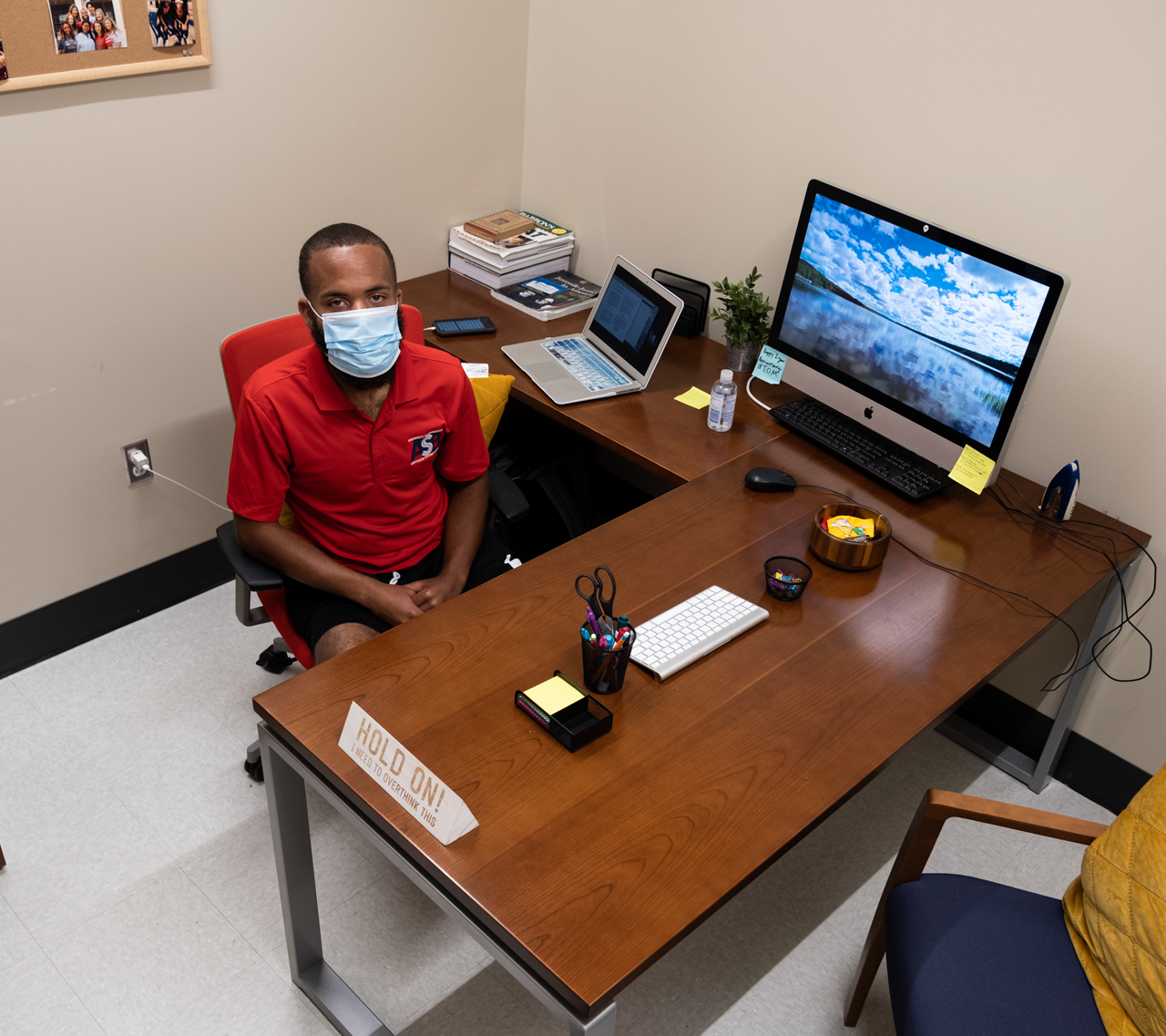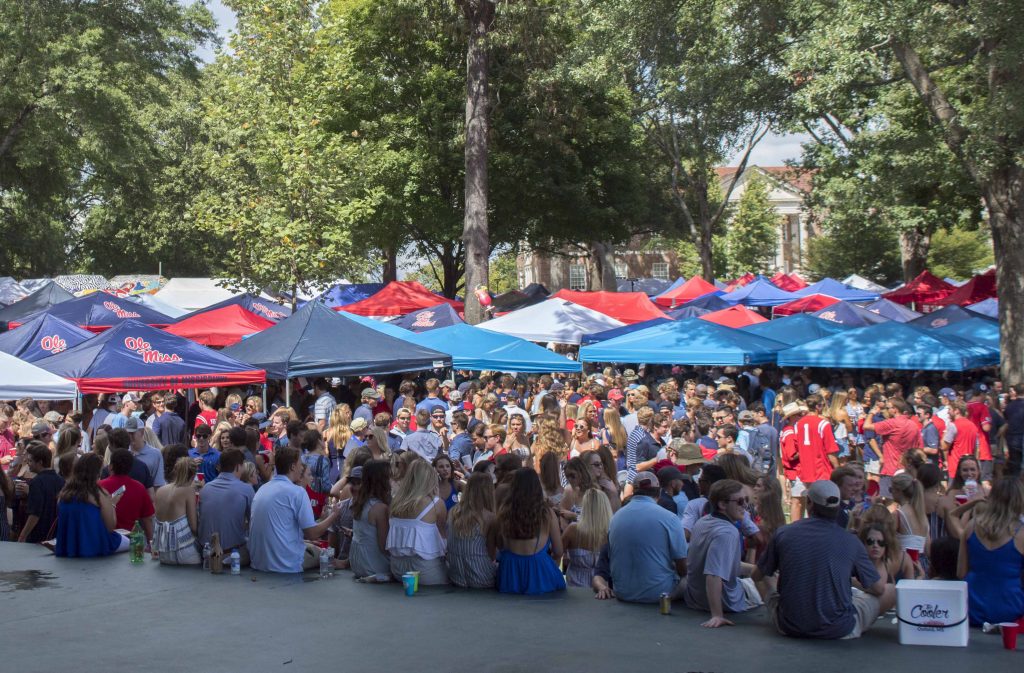When Joshua Mannery won the race for student body president in April, he knew he would play a different role than past presidents. The world had already been plunged into disaster aversion from the COVID-19 pandemic, and the University of Mississippi was in the beginning throes of managing virtual classes.
In the weeks following, Mannery launched into advocacy work, marching in protests for the relocation (not glorification) of the Confederate monument on campus and leading the student discussion about how the university community would address racial issues moving forward from the murder of George Floyd on May 25.
“From May 25 until probably about June 10, was a time that was very important to me,” he said. “’I’m not going to bring in some sort of spiritual notion that I was supposed to be president at that time, but I think having an African-American male serving and leading a university like the University of Mississippi helped this community find its voice and its perspective about everything that’s going on.”
However, as students have returned to Oxford and protests surrounding the university’s monument have died down, Mannery has found himself questioning what responsibilities he can or should take on during the COVID-19 pandemic.
“There is no precedent that says your ASB president needs to be this or to be that. At this time, I know a lot of people are pointing fingers, are advocating, are trying to be educators, and are trying to lead amongst everything that’s happening. It’s hard for me to know exactly what role I need to play,” Mannery said. “Do I need to be pushing the university to do better? Do I need to be trying to educate the student body about things they should be doing? Am I supposed to be like the student who takes one for the team and tells students what they shouldn’t do?”
Amid his confliction, though, Mannery is trying his best to empathize with other students and explain the student perspective to university administrators.
“I think there’s been a lack of messaging going out from some of our senior leadership and a lack of humanity in a lot of things that have been going out,” he said. “I think that element is definitely needed.”
Apart from the semi-regular emails regarding “updates on COVID-19 cases on campus” from University Marketing & Communications, university-wide messaging about the pandemic since school began on Aug. 24 has mainly consisted of one statement from Chancellor Glenn Boyce on Sept. 1.
In Boyce’s email, he stated that the number of active cases, currently 295, is “considered in conjunction with other metrics such as capacity of hospital beds” at Baptist Memorial Hospital-North Mississippi or “in tandem with availability of designated isolation or quarantine space on campus.” University provided quarantine bed availability is 31.3%, and isolation bed availability is 74.6%.
Other messaging from senior officials like Provost Noel Wilkin has been distributed via social media and includes tweets encouraging students to wear masks and use the university’s contact tracing app.
“The university is doing what it can, or some of the things it can to have us back, but there are some noticeable things that we can’t do or that we aren’t doing that makes me not feel fully confident in our ability to sustain a semester up to Thanksgiving break,” Mannery said. “I’m trying to be as understanding as possible because I know it’s not easy making these decisions as administrators.”
One of the things Mannery said he wishes the university would have done differently was including more student leaders in the creation of the university’s Campus Ready plan, which details the health and safety protocols, initial guidelines for student programming like Greek recruitment, expectations for students on campus and punishments for noncompliance.
“It was kind of jarring to then be asked to be a part of the public education and awareness aspect of it all because we didn’t have the context of the decisions that were made about the things we were pushing out,” Mannery said. “Going forward, I think we need to have a more pronounced role in these kinds of things if we’re going to expect them to succeed.”
Mannery also said “there is definitely some truth” to the idea that the university is placing an excessive amount of the responsibility to slow the spread of COVID-19 onto student leaders. Still, he said that he and other student leaders like Black Student Union president Nicholas Crasta are glad to take on the responsibility where they can.
“We, as student leaders, understand the importance of this moment, and we are more than willing to serve in that role if it encourages more students to comply,” Mannery said. “They’re asking for a lot of perspective from a small sample size of student leaders, so I do think there’s room to bring in way more people, more students to the table.”
One of the ways that Mannery has attempted to involve more students in slowing the rising COVID-19 case count on campus is through the campus “Are You Ready?” pledge. Mannery worked with ASB vice president Abby Johnston, Interfraternity Council president Cole Barnhill, College Panhellenic president Shelby D’Amico and BSU president Crasta to develop the pledge with the goal of giving students and community members a way to “buy in” to the idea of public health and safety guidelines. According to Mannery, the pledge has approximately 3,500 signatures.
The main problem in the university community that the pandemic has put on display is a lack of shared identity, according to Mannery, and if the university has to shut down before the end of the semester, he believes that will be why.
“We can point at faults in administration and their plans. We can point out faults in students, and some of them are taking it a little too far, still having parties and stuff. All of that is valid,” Mannery said. “There are things everybody can do to be better and do better, but at the end of the day, if we are not all in this together and invested in the same desire to protect each other, it’s kind of destined to fail.”












